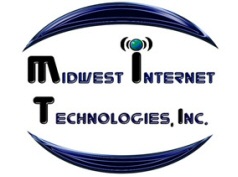
| HOME | WIRELESS | SERVICES | SUPPORT | CONTACT US | ABOUT US |
|
Login to your personal
profile control panel here. |
|
Login directly
to your webmail here. |
|
E-Mail Attachment Info |
|
In an attempt to protect our users, MITI (Midwest Internet Technologies Inc) employs a variety of methods to stop viruses and other unwanted items from sneaking there way onto your computers, by scanning emails and other files on our systems. We use various software systems, including MailScanner, ClamAntiVirus, and SpamAssassin, among others, to scan for malicious files, etc. Sometimes false positives can occur, we apologize in advance if such a incident occurs and causes you any inconvenience. Bear in mind we are trying to protect you in the process! Emails, and particularly email attachments, can contain viruses. Certain email attachments may be blocked, either by our mail systems (Mailscanner), or sometimes by your email client. MITI electronically scans all incoming and outgoing email (and email attachments) for the presence of viruses. Attachments which have a virus recognized by Mailscanner are removed from emails. The {Virus?} tag is added to the subject line and, included with the email, is an "MITI-Attachment-Warning.txt" attachment that gives you information about the virus. As one of its functions Mailscanner may also remove certain types of email attachments which are known to be capable of harboring viruses. In these cases the {Filename?} tag is added to the subject line of the email. All executable files are blocked. Zip files are allowed, but if the file contains a restricted attachment (see below), the zip file will be blocked. All password protected archives (ZIP,TAR etc) are blocked. All double file extensions (except repeated file extensions, eg bah.zip.zip) are banned, as this is often an attempt to hide the real filename extension e.g. virus.exe.jpg Sometimes MailScanner working in concert with SpamAssassin may add
the {Spam?} tag to the subject line, which means that email has passed
certain heuristic or comparative checks that may Identify it as spam.
You may also increase the spam checks by adjusting your spam detection
score in your SpamAssassin personal control panel. The following attachment types and/or extensions may be filtered: .ANI - Windows animated cursor file security vulnerability
|
Customer User Agreement | Acceptable Use Policy | Privacy Policy